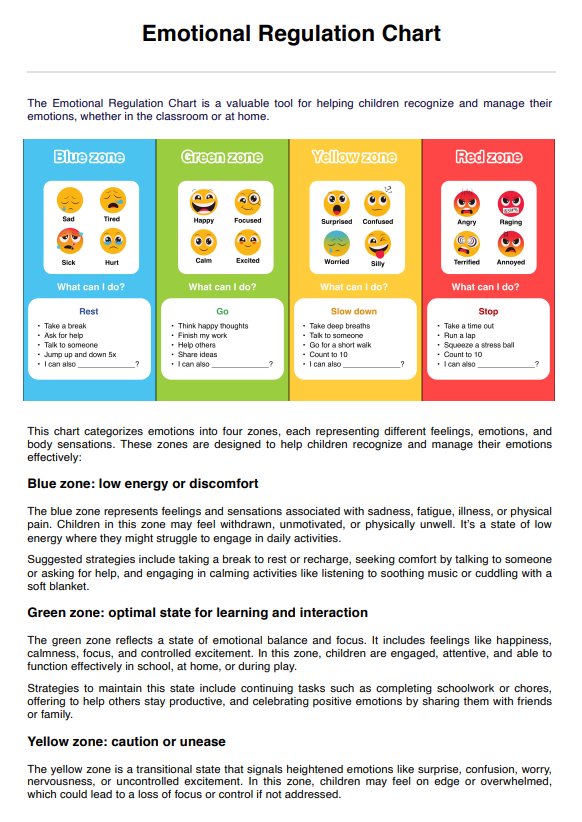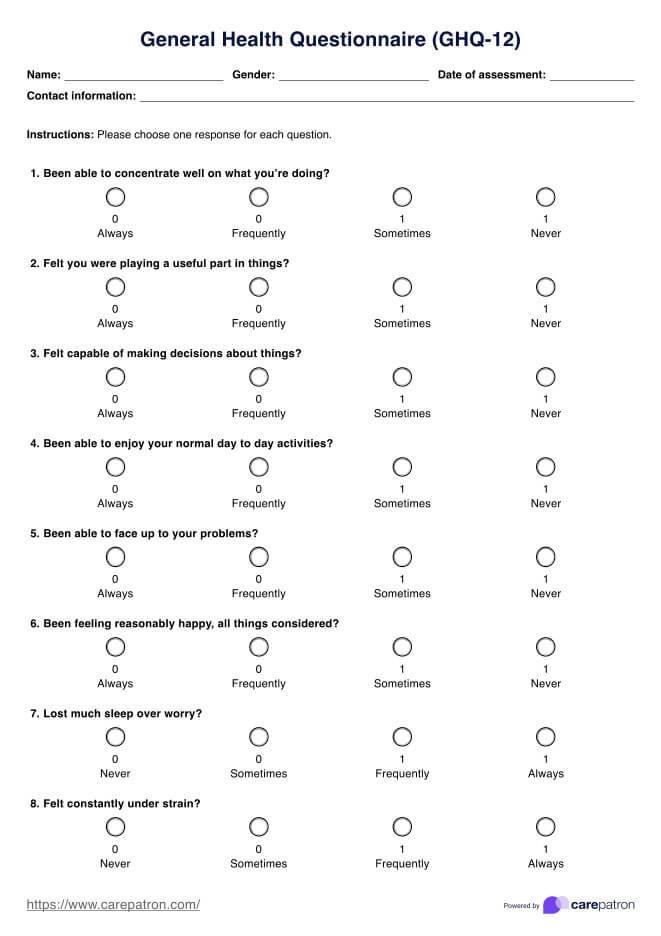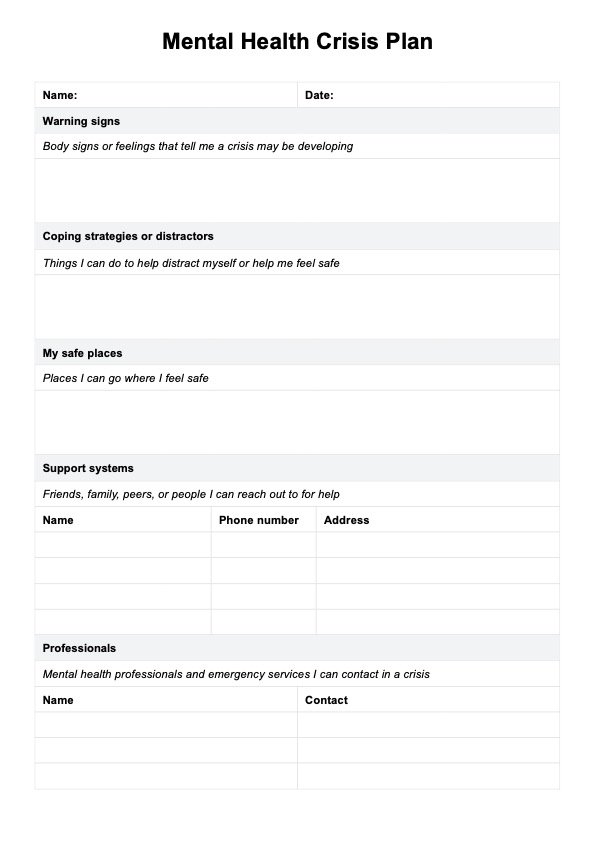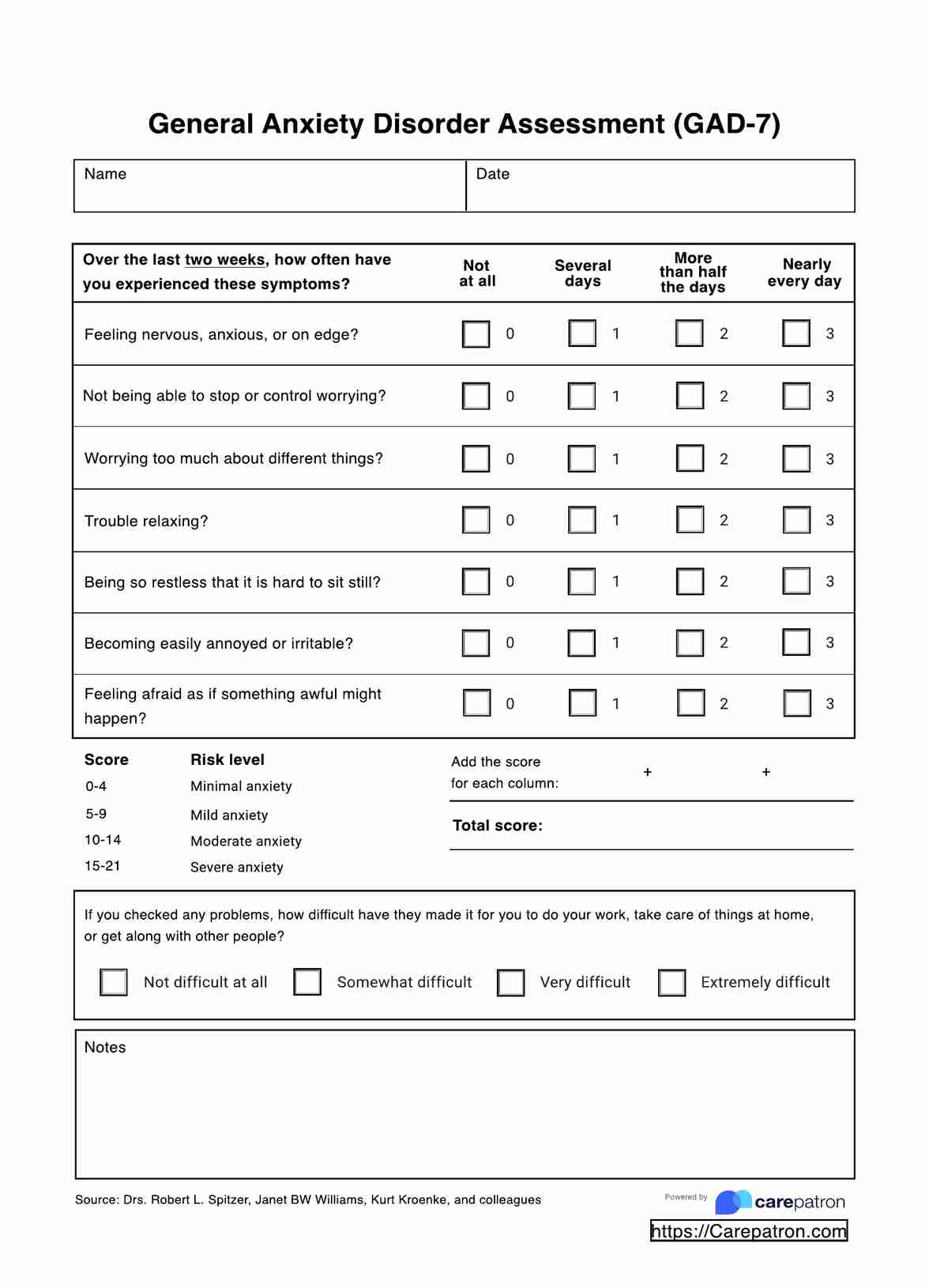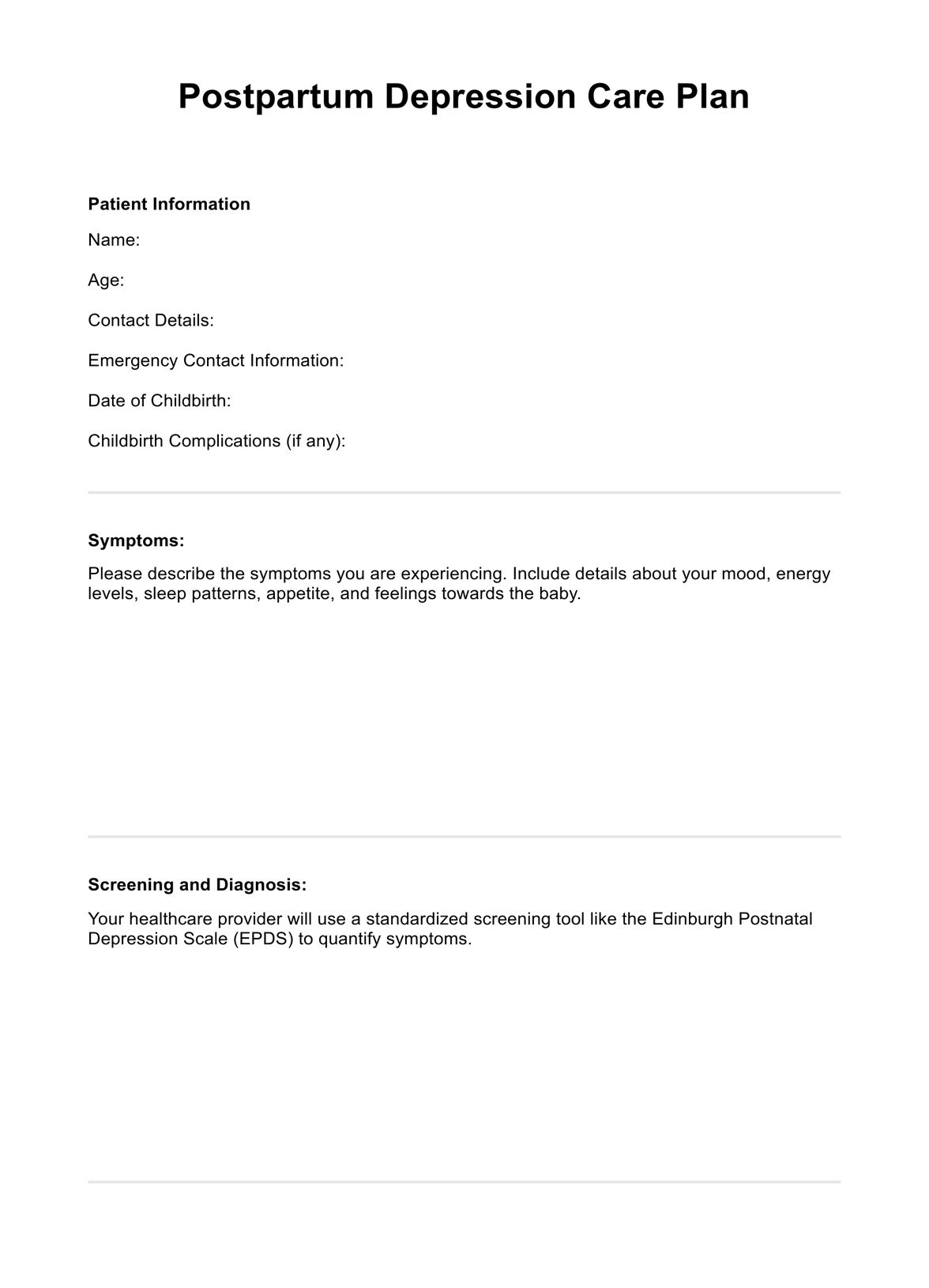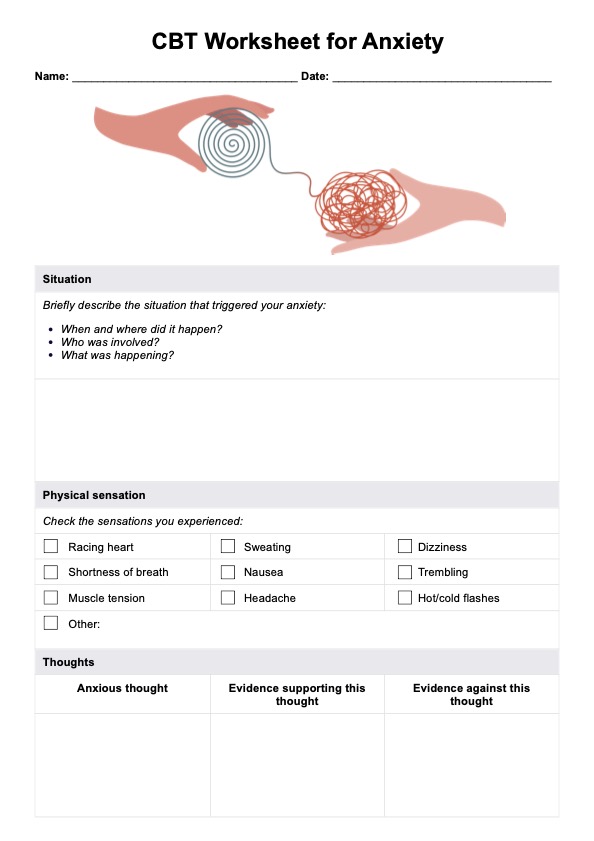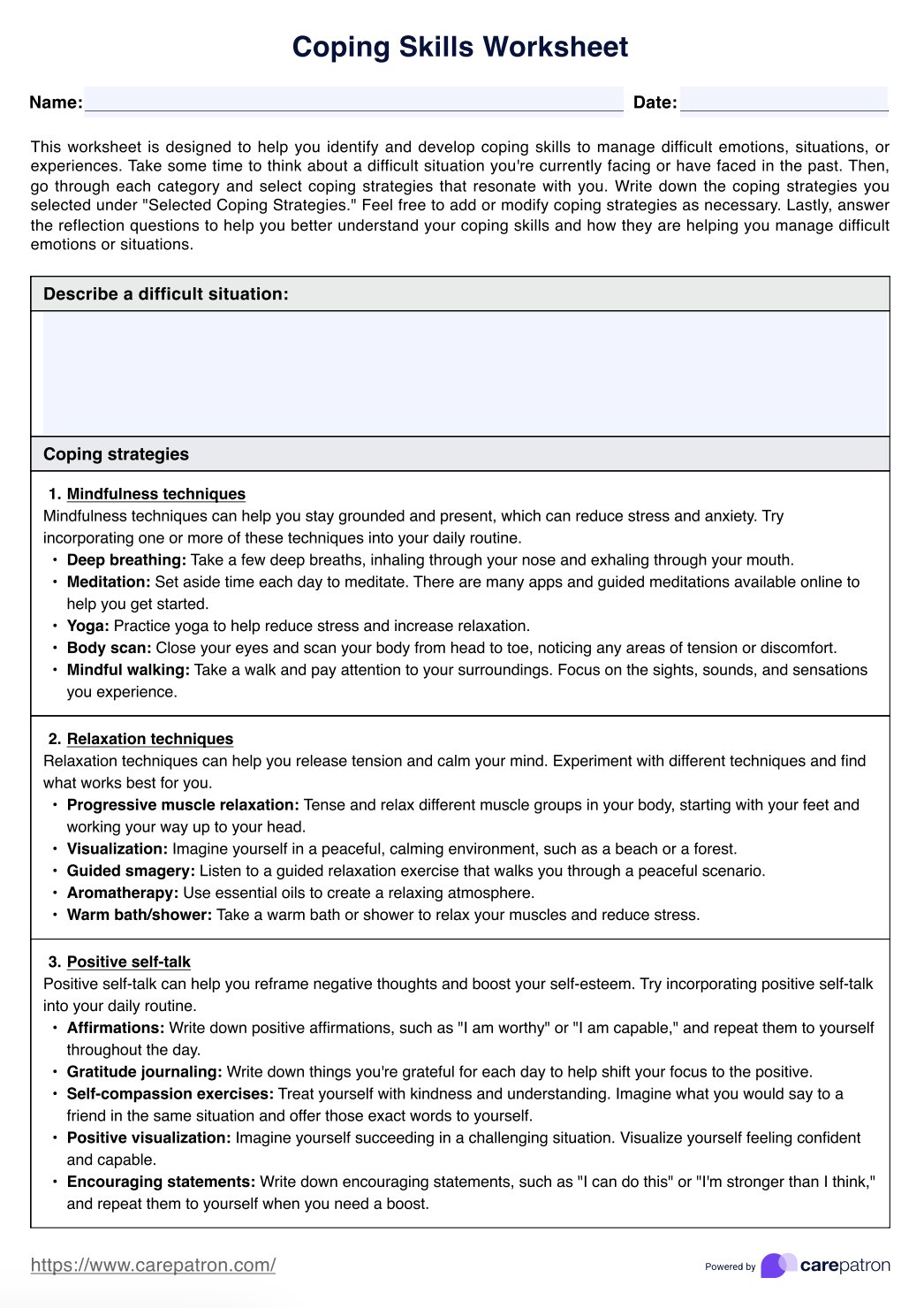Self Care Worksheet
Use this Self Care Worksheet to support clients in enhancing their physical, personal, spiritual, psychological, and professional wellness effectively.


What is a Self Care Worksheet?
A Self Care Worksheet is a practical tool designed to help users improve their overall self-esteem by identifying areas of their lives that require attention and healing, developing positive coping strategies, and creating a personalized self care plan. These self care worksheets often include prompts, checklists, or exercises that guide users through self-reflection, goal-setting, and action planning.
These worksheets typically cover various aspects of well-being, such as physical health, emotional management, reduced anxiety, and personal growth. They may encourage individuals or groups to explore their current self care practices, recognize areas for improvement, and develop specific strategies to enhance their overall well-being.
By fostering awareness and intention, these worksheets empower individuals to prioritize self care as a critical component of maintaining health, happiness, and self-improvement. They can also serve as a valuable tool for tracking progress over time, offering opportunities for adjustment and refinement as individuals evolve in their growth journey.
Self Care Worksheet Template
Self Care Worksheet Example
What are self care activities?
Self care activities encompass various practices individuals can engage in to promote good health and overall well-being. These activities and interventions can address multiple aspects of one's life, including physical, emotional, mental, social, and spiritual dimensions. Here are some examples of self care activities:
Physical self care
- Exercise (e.g., walking, yoga, swimming)
- Develop healthy eating habits
- Getting enough sleep
- Staying hydrated
Emotional self care
- Journal prompts, expressive writing, creating a to-do list
- Practicing mindfulness or meditation
- Seeking counseling or therapy
- Engaging in creative outlets (e.g., art, music, dance)
Mental self care
- Reading books or listening to podcasts
- Identify a new skill or hobby
- Pursuing educational or personal growth opportunities
- Practicing problem-solving or decision-making exercises
Social self care
- Spending quality time with loved ones
- Joining a support group or community organization
- Creating positive relationships
- Engaging in enjoyable social activities
Spiritual self care
- Practicing religious or spiritual rituals
- Spending time in nature
- Engaging in acts of service or volunteerism
- Exploring personal values and beliefs
How to use our Self Care Worksheet?
Here are some steps to help you make the most out of this worksheet:
Step 1: Access the worksheet
You can access this worksheet on the Carepatron app or website by selecting 'Use Template.' You can also download the PDF version using the link provided in this guide and print it for your clients.
Step 2: Introduce self care to your client
Explaining the importance of self care with your client can help them understand how it can positively impact their overall well-being. Alternatively, if you want to gauge your client's current self care practices, you can use resources such as the Self Care Assessment Worksheet. This tool is a starting point for self-reflection and awareness, helping individuals recognize their strengths and areas for growth and good mental health.
Step 3: Identify areas of improvement
This worksheet highlights different areas of self care, such as physical, mental/emotional, social, spiritual, and professional. These sections allow clients to highlight what they would like to improve and how they might go about creating that change.
Step 4: Discuss with your client
Once completed, discuss with your client what changes they would like to make and how they will implement them. Answer any questions that may arise during this time.
Step 5: Store this document
You may also wish to keep a copy of this completed worksheet on file for your client. You can do this through the Carepatron app. A completed version of this worksheet can support reflection and progression notes later in sessions.
Benefits of Self Care Worksheets
There are various benefits to using worksheets for self care. Here are just a few that can support your clients to achieve an overall positive well-being:
Promotes self-reflection
Having a physical copy of a worksheet can promote utilization. Using the worksheet frequently encourages clients to pause and reflect on their current well-being. This helps clients assess where they might need more attention, ensuring they take proactive steps to care for themselves.
Provides structure and clarity
Knowing exactly what to do in terms of self care can be difficult. This worksheet provides a structured way to engage with activities that allow individuals to complete tasks and feel good about them easily. Using a worksheet decreases the stress of coming up with new ideas to support well-being.
Increases accountability
Utilizing a worksheet designed for self care activities makes it easier for clients to take responsibility. When completing the worksheet before therapy sessions, clients may feel a sense of accomplishment. It can also support conversation between clients and their practitioner, fostering an important dynamic of the therapeutic relationship.
Commonly asked questions
It depends. Typically, this worksheet should be completed within 30 minutes. However, allow your clients as much time as they need. It may be more helpful and supportive for them to take this document home and bring it in with them in the next session for discussion.
Self care is an essential step in generating overall positive well-being. Taking care of the individual at the base level of emotions can support how they feel about themselves, others, and their engagements.
Examples of self care include engaging in physical activities such as exercise or yoga, practicing mindfulness or meditation, getting enough sleep, and eating a balanced diet. Individuals can also create art, explore creative hobbies, or participate in other enjoyable activities. It can also involve setting boundaries, saying "no" to others, and prioritizing one's needs, feelings, and desires.


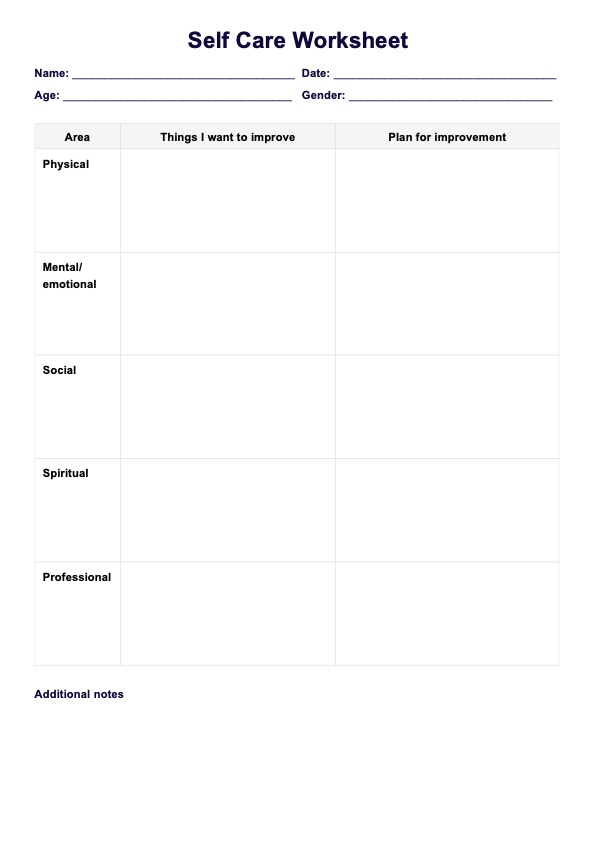
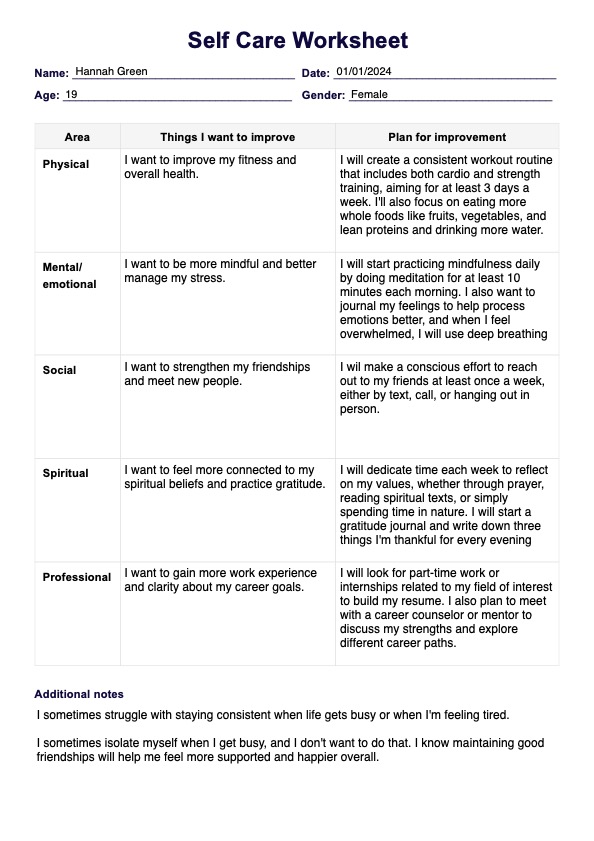

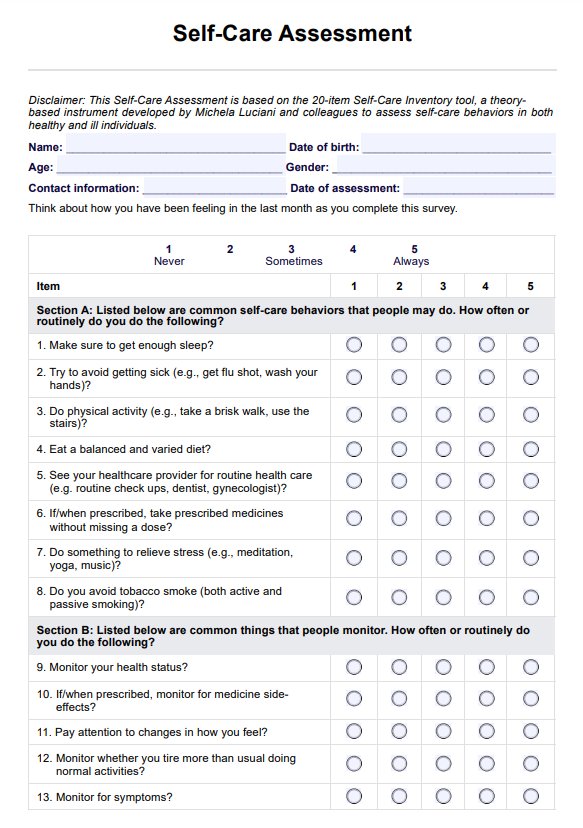
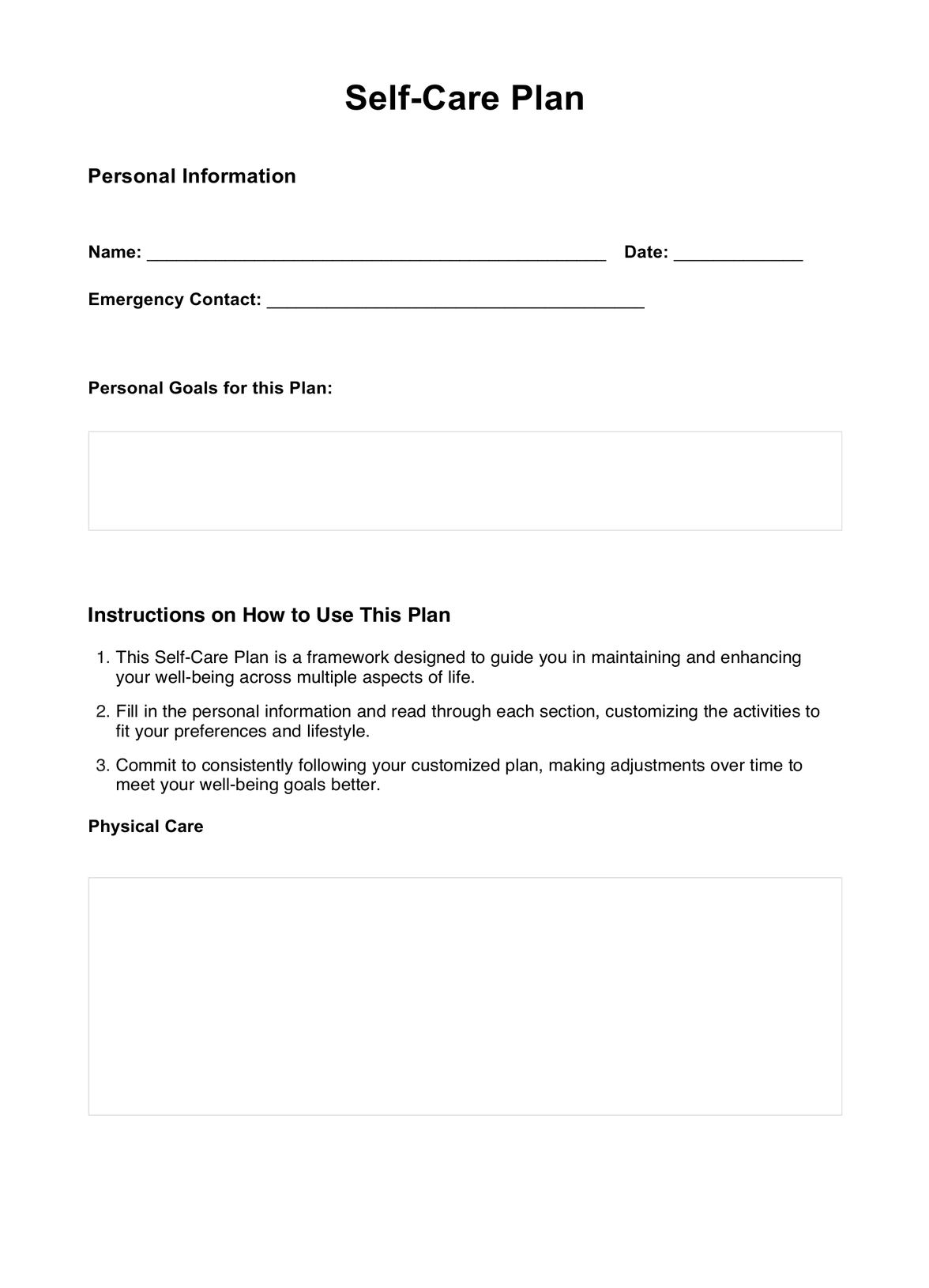














-template.jpg)






